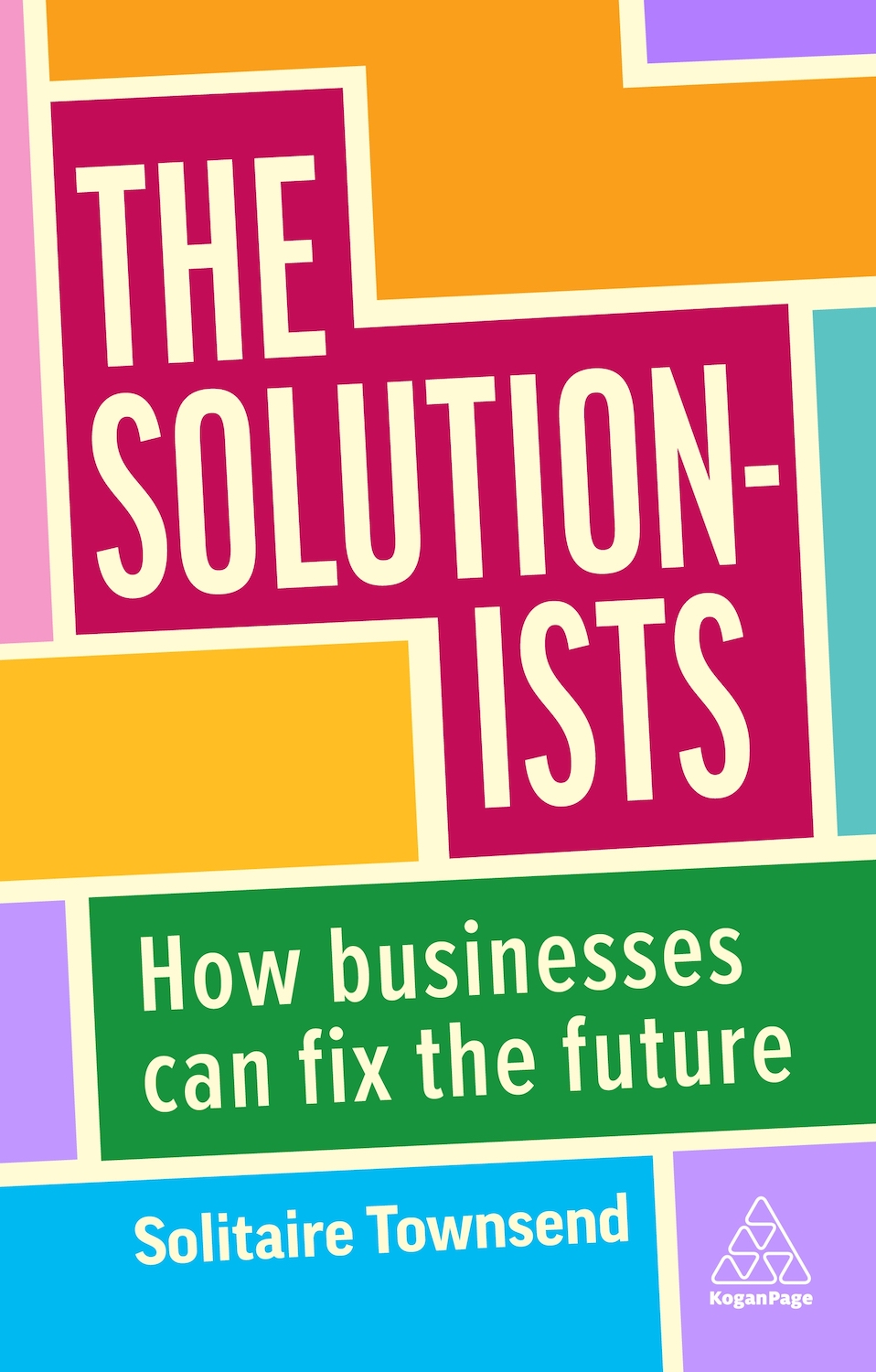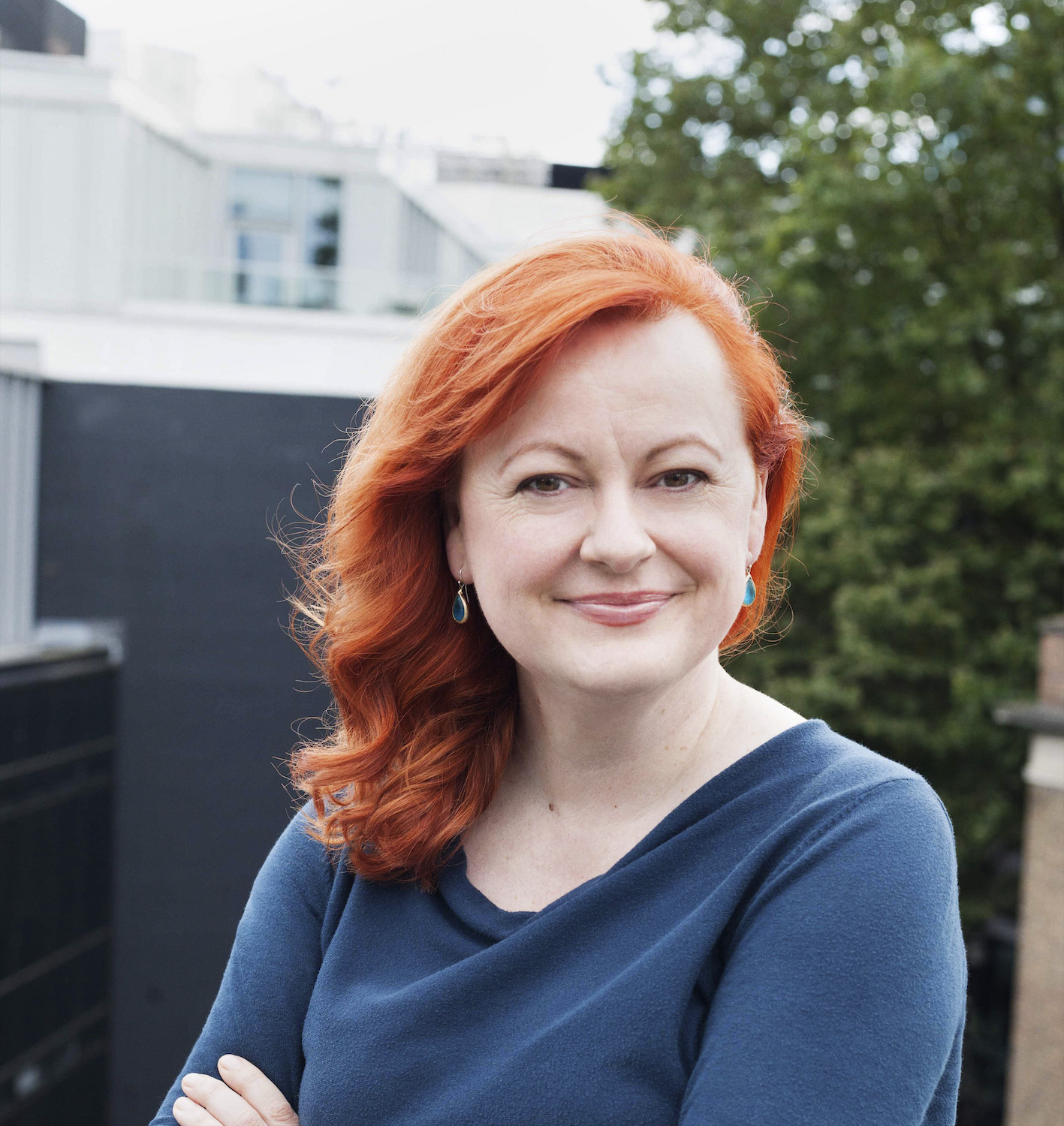
To solve society’s most pressing problems, we need a new type of entrepreneur.
Solitaire Townsend, co-founder of the consultancy Futerra, describes these changemakers in her new book, “The Solutionists: How Business Can Fix the Future.” Townsend defines a “Solutionist” as part-entrepreneur and part-activist who is exclusively focused on solving problems. This type of mindset is needed to tackle a wide range of societal problems such as biodiversity loss, social division, racism and exclusion, she argues.
Townsend said she coined the term to help like-minded people find and identify each other.
What distinguishes a Solutionist from a traditional entrepreneur is that their purpose lies in solving problems. "They don't approach social or eco-entrepreneurism and sustainable business as the latest fad for an additional value-add for business,” Townsend wrote. “Their companies, inventions, strategies and solutions are designed explicitly to confront problems — that's the Solutionist way.”
And these problem-solvers are focused on action. "A traditional entrepreneur is driven probably by excitement, by their product and vision, [and] financially where they can be front page of Fortune, front page of Forbes,” Townsend told TriplePundit. “But a Solutionist is driven by [the fact that] their product, their service, their business is going to solve the world's problems.”

In her book, Townsend outlines energy, infrastructure, transport, food, materials, finance, biodiversity, digitization, culture and the creative industry as key areas in which Solutionists can solve problems.
For example, Solutionists in the food industry might work on the research and development of foods that can help people reach optimal nutritional levels — and that they actually want to eat. Or they might work on developing marketing campaigns that encourage consumers to participate in the industry’s transition to net-zero emissions.
It’s time to communicate about solutions
The urgency of many of the world's problems, like climate change, is already clearly communicated, Townsend said. Now, it’s crucial to engage with the entertainment and culture sector to tell stories about solutions.
“We've got so many of the technological solutions that we need. We know what policies we need, they're just really difficult to get signed off,” Townsend said. “We have got so much of that infrastructure [of] solutions already worked out, it just needs to be implemented. The thing which we don't have yet is the story.”
That means engaging with creative industry professionals like scriptwriters, musicians, artists and social media creators to tell creative and impactful stories.
“We're in a dystopia,” she said. ”We don't need any more dystopia stories. And we don't need utopias either because that would be comforting but not very helpful. What we need is adventure stories of how we're going to get from where we are to the solutions.”
Compelling narratives not only kickstart conversations about challenges like climate change, but they also educate consumers about the solutions required to tackle them — especially in niche, complicated areas. Right now, funding and resources should be put toward telling stories about these solutions, Townsend said.

How aspiring Solutionists can overcome challenges
Being a Solutionist comes with its own set of challenges, like traditional entrepreneurship. However, there are some key differences. Entrepreneurs require funding to kickstart their projects. But Solutionists should ensure their investors are as interested in their business impact as they are in income, Townsend told 3p.
This path is a long-term pursuit that does not come with immediate rewards. “You tend not to save the world in the first two years of trying to do it," Townsend said. Having grit, tenacity and flexibility in adapting your plans is important. She encourages balancing a determined mindset to accomplish your goals, while being relaxed and flexible in how you achieve them.
Solutionists, especially young people, can benefit from managing expectations of themselves and their impact realistically, Townsend said. This means taking breaks, making mistakes, and alleviating themselves from the pressures of perfection and failure. And instead, focusing on the big picture — that they are working on solutions that they know are impactful, notwithstanding external validation.
Featured image: Pixabay/Pexels

Rasha is a freelance writer with experience in communications, marketing, and program management. She is a Toronto Metropolitan University's School of Journalism graduate and has worked on various media and communication campaigns across both nonprofit and private sectors. Rasha is passionate about storytelling for impact, whether she focuses on social enterprise, transforming our food system or making the business world more inclusive.














